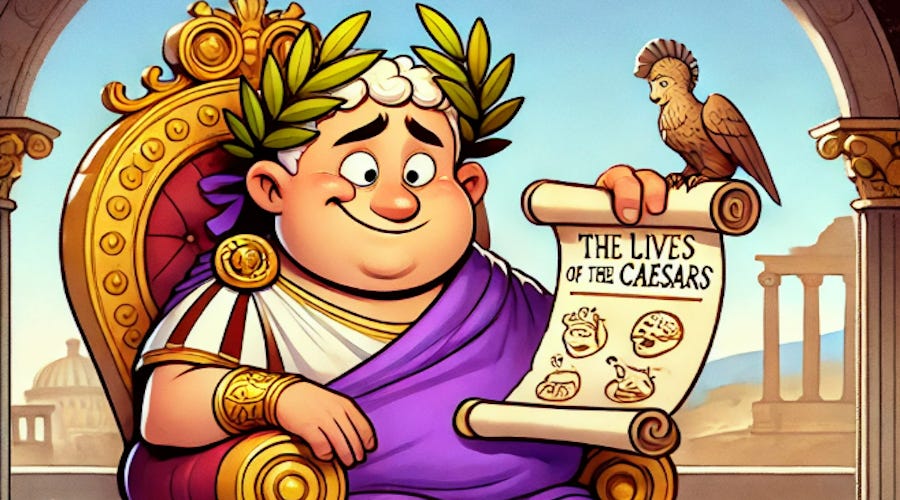Why ancient Rome still fascinates us
Are you thinking about the Romans? Tom Holland does it for a living.
Leading historian Tom Holland, co-host of The Rest is History podcast and author of a bestselling translation of Suetonius’ The Lives of the 12 Caesars, has some solid views on our enduring fascination with ancient Rome and its possible parallels with contemporary politics.
Speaking on Sky News in the United Kingdom recently, Holland discussed Rome’s transition from a republic to an autocracy, as chronicled in a series of Latin biographies by Gaius Suetonius Tranquillus (c.69-122AD), and its significance today.
Holland explained that the enduring appeal of Roman history lies partly in the captivating figures of the Caesars, whom he described as “terrifyingly glamorous” and “apex predators”.
He noted that while these rulers existed in a vastly different world, details of their lives, from their hair colour to their “sexual peccadillos” and favourite foods, make them feel strangely familiar.
Drawing on Suetonius’ work, written during the reign of Emperor Hadrian, Holland outlined a pivotal shift in Roman governance. Suetonius’ work begins in the declining years of the Roman republic before it “fell under the shadow of the great men of the age”, starting with Julius Caesar.
Caesar’s assassination led to a devastating Civil War, from which his adoptive son, Augustus, emerged as the dominant figure. Augustus established an autocracy on the “rubble of what had been a republic”, ruling for many decades.
As Holland pointed out, Suetonius’ work is not just about individual lives but also about “a process by which a republic became an autocracy”.
When asked about the most surprisingly “rotten” Roman emperor, Holland pointed to Caligula and Nero as two notorious figures, recounting the latter’s alleged role in the burning of Rome and his bizarre personal life.
However, Holland offered a nuanced perspective, suggesting that even Nero’s seemingly outrageous behaviour had a “kind of political logic”. Nero, he argued, played the role of a “great tragic hero” and, despite the disdain of the traditional elites, enjoyed considerable support from the “great mass of the people” through entertainment and shock tactics.
Holland drew a potential “modern parallel” to leaders who appeal directly to the populace over the heads of established elites.
He asserted that “one of the reasons why the story of ancient Rome is so fascinating is the sense we have that democracies and republics can crumble”. He cited the French Revolution and the Weimar Republic as other examples of this phenomenon.
A“particular reason why the Romans fascinate at the moment”, Holland said, was that the United States of America was consciously modelled on the Roman Republic.
Source: Sky News



